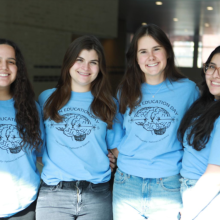Presynaptic proteostasis, function, and neurodegeneration
Synapses need to be maintained throughout one's lifetime to sustain brain function, and the understanding of how synapses are maintained in vivo is still in its infancy. The Chandra Lab investigates this important question through the lens of presynaptic proteostasis, employing multi-disciplinary approaches. Decrement in presynaptic chaperone capacity leads to profound loss of synapses, in many cases, in an activity-dependent manner, allowing the research group to interrogate circuit dysfunction at a molecular level. They have identified the major substrates of the known presynaptic chaperones and are investigating how chaperones sense and respond to neuronal activity. Additionally, the lab is exploring how select presynaptic misfolding leads to the dismantling of synapses and the interplay between synapse stability and structural plasticity. As synaptic aberrations are a common feature of cognitive dysfunction, their research advances WTI's mission to understand human cognition.
Methods
Topics
Biography
Sreeganga Chandra received her undergraduate and master’s degrees from India. She obtained a PhD in Chemistry and did her postdoctoral training with Thomas Südhof. Chandra has been a faculty member of Yale School of Medicine since 2007 in the departments of Neurology and Neuroscience. Her laboratory explores two interrelated themes—synapse maintenance and neurodegeneration. Chandra is passionate about training the next generation of scientists. The Chandra Lab is diverse, inclusive, and a catalyst for social change.


